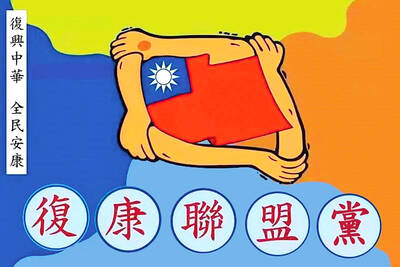Japanese pharmaceutical group Daiichi Sankyo Co said yesterday it had agreed to buy a majority stake in India’s top drug company Ranbaxy Laboratories for up to US$4.6 billion.
The deal reflects growing efforts by the world’s pharmaceutical giants to cope with fierce competition from generic drugmakers based in low-cost economies such as India.
Daiichi Sankyo said that it had entered a binding deal to acquire the stake owned by the Singh family, which controls Ranbaxy, a leading generic drug company.
It also plans to buy a 20 percent stake from public shareholders and to acquire new shares from the Indian company with the aim of taking a stake of at least 50.1 percent.
Upon completion of the transaction, which is valued at US$3.4 billion to US$4.6 billion, Ranbaxy is expected to become a subsidiary of Daiichi Sankyo.
The deal, which is subject to shareholder and regulatory approval, is expected to be completed by the end of March.
The move will “complement our strong presence in innovation with a new, strong presence in the fast growing business of non-proprietary pharmaceuticals,” Daiichi Sankyo chief executive Takashi Shoda said in a statement.
More than 90 percent of Ranbaxy’s sales come from generic products.
Ranbaxy and other, similar firms vie in the US and Europe to grab first rights to sell inexpensive generic drugs.
Under the terms of the deal, Malvinder Singh, grandson of Ranbaxy founder Bhai Mohan Singh, will continue as chief executive and also become chairman of the board of the Indian group.
“This is a significant milestone in our mission of becoming a research based international pharmaceutical company,” Malvinder Singh said in the statement.
Ranbaxy has expanded abroad by selling inexpensive copies of branded drugs off-patent and through successful challenges to patents owned by Western companies.
It has said it aims to be one of the world’s top-five generic drugmakers by 2012 with sales of US$5 billion.
The Japanese group will pay 737 rupees per share in the Indian company, a 31.4 percent premium to its closing share price on Tuesday.

AIR DEFENSE: The Norwegian missile system has proved highly effective in Ukraine in its war against Russia, and the US has recommended it for Taiwan, an expert said The Norwegian Advanced Surface-to-Air Missile Systems (NASAMS) Taiwan ordered from the US would be installed in strategically important positions in Taipei and New Taipei City to guard the region, the Ministry of National Defense said in statement yesterday. The air defense system would be deployed in Taipei’s Songshan District (松山) and New Taipei City’s Tamsui District (淡水), the ministry said, adding that the systems could be delivered as soon as the end of this year. The US Defense Security Cooperation Agency has previously said that three NASAMS would be sold to Taiwan. The weapons are part of the 17th US arms sale to

SERIOUS ALLEGATIONS: The suspects formed spy networks and paramilitary groups to kill government officials during a possible Chinese invasion, prosecutors said Prosecutors have indicted seven retired military officers, members of the Rehabilitation Alliance Party, for allegedly obtaining funds from China, and forming paramilitary groups and assassination squads in Taiwan to collaborate with Chinese troops in a possible war. The suspects contravened the National Security Act (國家安全法) by taking photos and drawing maps of key radar stations, missile installations and the American Institute in Taiwan’s headquarters in Taipei, prosecutors said. They allegedly prepared to collaborate with China during a possible invasion of Taiwan, prosecutors said. Retired military officer Chu Hung-i (屈宏義), 62, a Republic of China Army Academy graduate, went to China

INSURRECTION: The NSB said it found evidence the CCP was seeking snipers in Taiwan to target members of the military and foreign organizations in the event of an invasion The number of Chinese spies prosecuted in Taiwan has grown threefold over a four-year period, the National Security Bureau (NSB) said in a report released yesterday. In 2021 and 2022, 16 and 10 spies were prosecuted respectively, but that number grew to 64 last year, it said, adding that the Chinese Communist Party (CCP) was working with gangs in Taiwan to develop a network of armed spies. Spies in Taiwan have on behalf of the CCP used a variety of channels and methods to infiltrate all sectors of the country, and recruited Taiwanese to cooperate in developing organizations and obtaining sensitive information

BREAKTHROUGH: The US is making chips on par in yield and quality with Taiwan, despite people saying that it could not happen, the official said Taiwan Semiconductor Manufacturing Co (TSMC, 台積電) has begun producing advanced 4-nanometer (nm) chips for US customers in Arizona, US Secretary of Commerce Gina Raimondo said, a milestone in the semiconductor efforts of the administration of US President Joe Biden. In November last year, the commerce department finalized a US$6.6 billion grant to TSMC’s US unit for semiconductor production in Phoenix, Arizona. “For the first time ever in our country’s history, we are making leading edge 4-nanometer chips on American soil, American workers — on par in yield and quality with Taiwan,” Raimondo said, adding that production had begun in recent